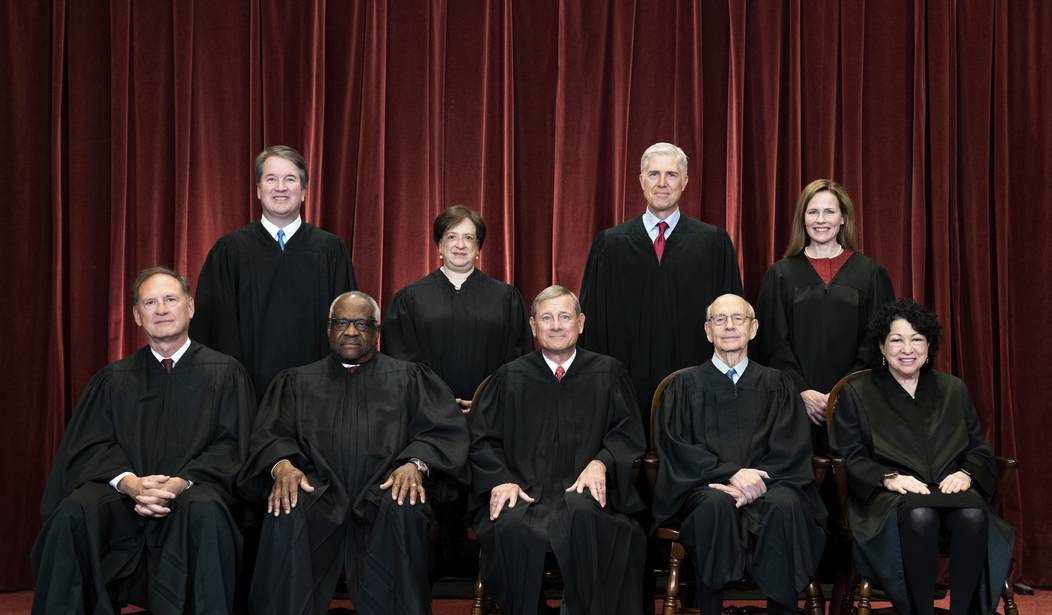And it’s not Young v Hawaii, or at least not yet it isn’t. Instead, the Supreme Court granted cert in a case involving New York’s requirement to demonstrate a specific need to carry a firearm before being granted a permit. It’s the first time in over a decade that the court has agreed to review a case relating to the Second Amendment, raising expectations that the 6-3 conservative majority might want to sustain and expand Heller and McDonald:
The court agreed to hear a challenge to a New York state law that allows residents to carry a concealed handgun only if they can demonstrate a special need beyond a general desire for self protection. The law “makes it virtually impossible for the ordinary law-abiding citizen” to get the necessary license, said Paul Clement, a lawyer representing the challengers.
One of them, Robert Nash, said he was wanted to carry a gun in response to a string of robberies in his neighborhood. Another, Brendan Koch, also cited a desire to carry a gun for protection. Both men said they had completed gun safety courses, but both were turned down when they applied for permits. They joined a lawsuit challenging the law brought by the New York State Rifle and Pistol Association.
New York bans carrying a handgun openly. The state law says anyone seeking a license to carry a concealed weapon must demonstrate “a special need for self protection distinguishable from that of the general community or of persons engaged in the same profession.”
The law is so restrictive, Clement said, that it cannot be reconciled with the Supreme Court’s “affirmation of the individual right to possess and carry weapons in case of confrontation.”
For those keeping score, this case has similarities to Young v Hawaii, in a legal if not a nonsense context. The Ninth Circuit issued an en banc ruling last month essentially banning all carrying of firearms away from home, unless specifically granted permission by the government. That ruling relied on pre-statehood “tradition,” which the Ninth Circuit somehow deduced was ascendant over the Constitution itself.
The New York Times reports somewhat approvingly of that decision in its analysis of this move by the Supreme Court, while noting the district split which all but guaranteed that the court would have to take up the issue:
Federal appeals courts have generally rejected challenges to such restrictions. In March, for instance, an 11-judge panel of the United States Court of Appeals for the Ninth Circuit, in San Francisco, upheld Hawaii’s law by a 7-to-4 vote.
“Our review of more than 700 years of English and American legal history reveals a strong theme: government has the power to regulate arms in the public square,” Judge Jay S. Bybee, who was appointed by President George W. Bush, wrote for the majority.
The federal appeals court in Chicago, on the other hand, struck down an Illinois law that banned carrying guns in public. And a federal appeals court in Washington struck down a restrictive District of Columbia law that it said amounted to “a total ban on most D.C. residents’ right to carry a gun.”
In urging the Supreme Court not to hear the case from New York, New York State Rifle & Pistol Association Inc. v. Corlett, No. 20-843, Barbara D. Underwood, the state’s solicitor general, said its law required people seeking licenses to give an “actual and articulable” reason for needing to carry a gun, distinguishing it from the more restrictive Illinois and District of Columbia laws.
The fact that the court is taking up the New York case to settle this split is telling. It might show even more seriousness that they didn’t take Young instead, with its beyond-nonsensical dispensation of the Constitution. This suggests that at least four justices want to settle this issue in a serious manner about the meaning of “bear” in the plain text of the Second Amendment. Clarence Thomas and Neil Gorsuch have signaled that they want this question settled in a way that demonstrates that the Second Amendment is no “disfavored right.” The court let New York City off the hook for a law that prohibited carrying even unloaded weapons to shooting ranges outside of the city when the city repealed the law, but Brett Kavanaugh wanted to push ahead on the issue at the time rather than moot it.
The NYT thinks that the conservatives think they have a better head count now:
In June, however, the court turned down some 10 appeals in Second Amendment cases. Since it takes only four votes to grant review, there is good reason to think that the court’s conservative wing, which at the time had five members, was unsure it could secure Chief Justice John G. Roberts Jr.’s vote.
Justice Barrett’s arrival changes that calculus.
Maybe that’s the case, or maybe these decisions are bad enough that the court doesn’t have much choice but to settle the issue. Even the chief justice should have problems with Young, for instance. I’d expect the court to roll up any appeal of Young into this cert, if for no other reason than to allow Thomas and Gorsuch to beat it like a piñata, as it clearly deserves.







Join the conversation as a VIP Member